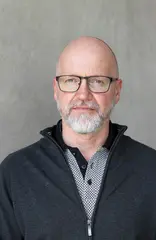The didactic workshop is a real treasure trove for prospective (primary) school teachers. Here you can find not only scientific and didactic literature, but also a wide range of materials for their internships and for experimenting in the classroom at Primary schools. "Trying them out and borrowing them is expressly encouraged," says Sandra Tänzer, Professor of Pedagogy and Didactics of Social Studies and Science at the University of Erfurt. And at the same time she invites colleagues and students of other subjects relevant to teaching to discover the laboratory for themselves and be inspired.
It all started when the subject area was looking for a way to better support students in the development of didactic-methodical competences in scientific and technical Social Studies and Science. Sandra Tänzer and her team were inspired by the University of Bamberg. "The colleagues there have already set up such a laboratory, we took a look at it, took up this wonderful idea and developed it further for our students," explains Dr Andreas Michael Raith, whose conception of the laboratory in Erfurt is essentially based on. Raith is visibly proud of the equipment in the didactics lab. "16 modern and friendly workstations, a very extensive collection of scientific, didactic and practical teaching literature on all common topics in the field of Social Studies and Science, diverse collections of materials for experimentation and the opportunity for personal consultation on didactic questions within the framework of our didactic office hours - this enriches learning and teaching in the field of Social Studies and Science enormously." Of course, Raith also sends his students into the lab himself. "How does an earthworm perceive its environment?" he asks them, for example, and lets them find out exactly that there. By means of literature research and small experiments that provide information about which sensory organs are available to an earthworm. Afterwards, the students have to think about how they can teach this in a practical way in the classroom. Appropriate class sets of material are available for the experiments, which the students can of course also borrow for their internships at schools. They are neatly packed in the cupboard - in boxes labelled "swimming and sinking", for example. Whether they are suitable for the earthworm question in this particular case remains to be seen. In any case, they are a good start for small physics experiments. "As far as possible, we respond to the needs and ideas of our students during their internships," says Andreas Raith. That's why every now and then a new box is packed with materials for new experiments. But whatever the support looks like: The focus is always on the desire to make the prospective (primary) school teachers at the university so didactically fit that their teaching later at the schools is not only exciting and sustainable, but also fun. With the didactic workshop, the University of Erfurt has now created another building block for this.


